
Latest Coronavirus Disease COVID 19 News and Research
Low-cost PCR test designed to detect coronavirus
The project of Consuelo Rubio has been among those chosen for the call of the Valencian System of Innovation and Research for the COVID-19 emergency.
Potential targets discovered for COVID-19 therapy
A team of biochemists and virologists at Goethe University and the Frankfurt University Hospital were able to observe how human cells change upon infection with SARS-CoV-2, the virus causing COVID-19 in people.
Under COVID cloud, prisons in rural America threaten to choke rural hospitals
As the COVID-19 pandemic swept into Montana, it spread into the Marias Heritage Center assisted living facility, then flowed into the nearby 21-bed hospital.
Despite pandemic, trauma centers see no end to ‘the visible virus of violence’
But many weren't there because of the coronavirus. They were there because they'd been shot.
Study finds no evidence of COVID-19 virus transmitting from cats to humans
Three cats infected with the virus that causes COVID-19 spread the virus to three other cats in a lab study published in The New England Journal of Medicine by a research team working in Tokyo, Japan, and Wisconsin, USA.
Machine learning can be used to track public interest in COVID-19 topics on popular internet sites
Machine learning can be used to track surges in interest in health topics on popular online comment boards, like Reddit, according to a new study conducted during the COVID-19 outbreak by researchers in the Perelman School of Medicine at the University of Pennsylvania (Penn Medicine).
New textile coating prevents viruses from adhering to the surface
Masks, gowns, and other personal protective equipment (PPE) are essential for protecting healthcare workers. However, the textiles and materials used in such items can absorb and carry viruses and bacteria, inadvertently spreading the disease the wearer sought to contain.
Biomechanics Institute establishes mask measurements for children aged 3 to 12
The Biomechanics Institute (IBV), benchmark technological centre for the health, well-being and quality of life of people, is taking part in a work group coordinated by the Spanish Standardisation Body (UNE) to establish the minimum requirements that the hygienic masks must meet regarding the materials used for their manufacturing, creation, marking and use.
Comparison of flu deaths with COVID-19 deaths
A new study published in the journal JAMA Internal Medicine in May 2020 reports that false comparisons between the count of COVID-19 deaths as reported by various hospitals in the US, and the estimated flu-related deaths, causes significant confusion and may impair the ability to design public health policies.
Research reveals how long SARS-CoV-2 survives on surfaces, in feces and urine
A new study published on the preprint server medRxiv* in May 2020 shows that the severe acute respiratory syndrome coronavirus 2 (SARS-CoV-2) that causes COVID-19 disease can remain viable for a maximum of one week on smooth environmental surfaces, for several hours in human feces, and for a maximum of 4 days in human urine. This knowledge could help guide disinfection policies to control the virus spread.
Relaxation of social and physical distancing measures may result in profound mortality
Even as the world struggles to live and make a living, faced with the dual threat of a rapidly spreading viral illness and economic slowdown, a new study published on the preprint server medRxiv in May 2020 says that relaxing non-pharmacological interventions will allow the SARS-CoV-2 virus to become endemic.
Lessons for COVID-19 from 2009 H1N1
The world has experienced many outbreaks of viral diseases. Over the past two decades, we have also seen the emergence of zoonotic human respiratory coronaviruses with pandemic potential.
Low albumin levels could predict poor outcome in COVID-19
A Spanish study has revealed that COVID-19 patients who have a low level of albumin have a poorer outcome compared to those with normal levels of blood albumin. The study titled, “Low albumin levels are associated with poorer outcomes in a case series of COVID-19 patients in Spain: a retrospective cohort study,” was released prior to peer-review on the open-access preprint server site Medrxiv*.
Leave packages unopened and untouched for 72 hours to prevent the spread of COVID-19
Researchers have advised that people need to leave their parcels and packages unopened and untouched for 72 hours to help stop the spread of severe acute respiratory syndrome coronavirus 2 (SARS-CoV-2) that causes COVID-19 disease. The virus, as is evident from the raging pandemic across the world, is highly infectious and could survive on surfaces for up to 72 hours.
COVID-19 lockdown exit strategies: deliverance or disaster?
A new study by researchers at the University of Cambridge, Universidad de Sevilla, and the University of Massachusetts, published on the preprint server medRxiv in May 2020, shows that it is essential to choose a restrictive exit strategy while easing COVID-19 lockdowns, because failure to do so may lead to catastrophic results.
Does HIV infection increase the severity of COVID-19?
A new study by researchers at the New York University Grossman School of Medicine and published on the preprint server medRxiv* in May 2020 reports that being infected with HIV at the time of acquiring COVID-19 does not significantly increase the severity of illness or the risk of complications.
Researchers identify CoV Mac1 proteins as a potential SARS-CoV-2 vaccine target
A recent study by researchers at the University of Kansas and published on the preprint server bioRxiv* reveals that Mac1 protein implicated in the infection process of severe acute respiratory syndrome coronavirus 2 (SARS-CoV-2) has a strikingly similar structure and activity in all coronaviruses – suggesting that possible future treatments targeting this protein may exert broad antiviral activity.
Should school closures related to COVID-19 be continued long-term?
Since the coronavirus disease 2019 (COVID-19) outbreak was identified in Wuhan, China, in December 2019, many countries have introduced restrictive measures to curb the circulation and spread of severe acute respiratory syndrome coronavirus 2 (SARS-CoV-2).
UCI Health to initiate clinical trial of a drug to treat critically ill COVID-19 patients
UCI Health will initiate a clinical study of a drug to treat critically ill COVID-19 patients who face a high mortality rate because of acute inflammation that fills their lungs with fluid, a grave condition that even mechanical ventilation cannot improve.
Placentas of pregnant women with COVID-19 showed abnormalities
A study conducted by researchers at Northwestern University, Chicago, has found that the placentas of pregnant women who were infected with severe acute respiratory syndrome coronavirus 2 (SARS-CoV2) showed abnormalities, compared with those of uninfected women.

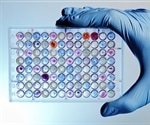

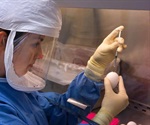


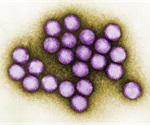


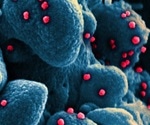
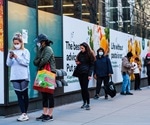
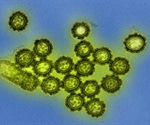


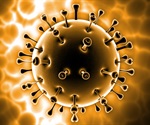
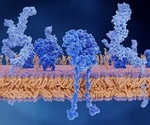
_8b30cb98c2be40b59db7d7c9d8d22c37-150x125.jpg)
_0f0e86d2a2394e0783e538500839f2b5-150x125.jpg)
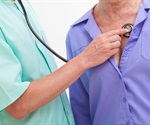
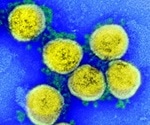





















.png)












No hay comentarios:
Publicar un comentario